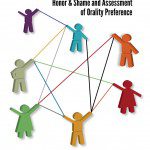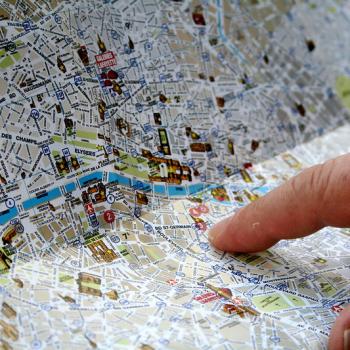 A lot has been written about how honor and shame influence large cultures, whether Chinese, Japanese, among many others. But what about smaller or unreached people groups (UPGs)?This post gives a few tips to help you identify ways that honor and shame influence the “unreached people group” with whom you work. This is a simple and practical post.
A lot has been written about how honor and shame influence large cultures, whether Chinese, Japanese, among many others. But what about smaller or unreached people groups (UPGs)?This post gives a few tips to help you identify ways that honor and shame influence the “unreached people group” with whom you work. This is a simple and practical post.
Possible Conversation Starters
Here are a few possible sample questions that you could use to learn more about their “honor-shame” perspective.
How do people become leaders in the village/tribe?
How does someone join the village? family?
What would people think if their child left the village to live in a city? Why?
Can people switch villages? Why or why not?
How do people decide who gets married?
What are a person’s most important relationships? Why?
Of course, you could think of many others.
Scripture Stories and Discussion Questions
The following Scripture passages are helpful starting points when trying to dialogue with people about the Bible. I’ve listed the passage, a few key questions, and a some possible answers.
Genesis 11:1–9 (Supplementary Story: Gen 12:1–3)
Q: Why did the people of Babel build the tower?
Reputation, therefore safety. Verse 4 says, “let us make a name for ourselves, lest we be dispersed over the face of the whole earth”
Q: Why is it a problem for them to “make a name for themself”?
Possible answer: competing with others for reputation brings division; does not honor God
Q: Why is the consequence so serious?
Possible answer: humanity is divided; greater conflicts
Here’s a supplemental question (if adding Genesis 12):
Q: Why does God promise to give Abraham a great name but he punished the people of Babel, who wanted to make a great name for themselves?
Possible answer: God gives honor. We don’t give honor to ourselves. God wants all nations to have honor, not just one village or nation.
Genesis 4:1–12
Q: What is the problem in Cain and Abel’s relationship? Cain and God’s relationship?
Possible answer: Cain competed with Abel for God’s approval. Cain only wanted relationship with God if God would give him honor.
Q: Why did Cain murder Abel?
Possible Answer: Cain was jealous that God honored Abel rather than Cain.
Q: How does God punish Cain?
Possible Answer: Cain is exiled from his family.
Luke 15
Q: How did the younger son become shameful?
Various possible answers, including: dishonored father, asked for inheritance, left the family, immoral living, ate pigs food, squandered father’s money
Q: What is the older brother’s problem?
Possible answers: refused father’s request, jealous of brother, divides the family
Q: How did the father and younger son reconcile their relationship?
Possible answers: the father runs to the son, slaughters the fattened calf, holds a public celebration
Crucifixion & Resurrection
Q: Who did Jesus claim to be?
Possible answers: king of Israel, God in person
Q: How did the social leaders dishonor Jesus?
Possible answers: insults, trial, beatings, execution on cross
Q: How did God honor Jesus?
Possible answers: resurrection (thus, gives life; no longer suffers shame of death; reverses social leaders’ verdict)
General Pattern for Evangelistic Presentations
There is a real simple pattern you can follow when sharing the gospel in honor-shame contexts. Ask two types of questions three times each. You do this in order to highlight the honor-shame of both listeners and Christ. Each question focuses on achieved honor and ascribed honor (respectively).
Cycle 1–– We all lack honor in some way.
What have you done (or not done)? (achieved honor/shame)
Who do you have (or not have) relationship with? (ascribed honor/shame)
Cycle 2 –– Christ has perfect honor
What has Christ done? (achieved honor/shame)
Who does Christ know? (achieved honor/shame)
Cycle 3 –– We can have honor (and a group)
If we follow Christ . . .
What can we do? (or, . . . must we do?) (achieved honor/shame)
Who can we become? (achieved honor/shame)
These questions guide a person to reflect on their own honor-shame status. They will find that they lack the honor they desire. In fact, they will probably see a lot of places they either suffer or deserve shame. In contrast, Jesus has both achieved and ascribed honor (but no shame!). Therefore, as we are in relationship to Christ, we share in his honor.
Photo credit: Creative Commons 2.0/en.wikipedia













